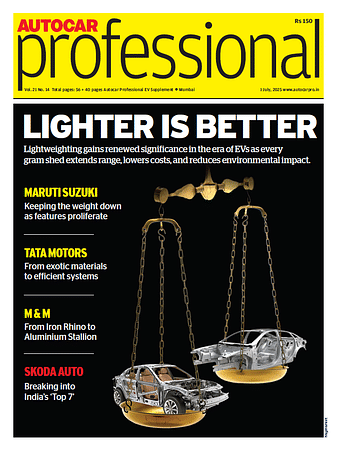Yokohama Rubber Develops First Theoretical Model to Predict Tire Wear
The model addresses the complex challenge of predicting wear behavior on multiscale surfaces, ranging from nanometer to centimeter levels.
Yokohama Rubber Co., Ltd. and rubber friction expert Dr. Bo Nils Johan Persson have developed the world's first theoretical model that can predict rubber wear rates on uneven road surfaces and the size distribution of wear particles. The research, completed in December 2024, was featured as the cover story in the February 21, 2025 edition of The Journal of Chemical Physics.
The model addresses the complex challenge of predicting wear behavior on multiscale surfaces, ranging from nanometer to centimeter levels. Testing in both dry and wet conditions across various contact pressures and sliding speeds demonstrated that the model's predictions closely matched experimental results for wear rates and particle size distribution.
Dr. Persson, who works at the Peter Grünberg Institute in Germany and Lanzhou Institute of Chemical Physics in China, brings extensive expertise in contact mechanics, friction, wear, and lubrication. Through his company Multiscale Consulting, he has supported numerous firms in the rubber industry, with his approach validated through peer-reviewed research.
The development comes at a crucial time as tire wear particles increasingly become an environmental concern, particularly with the rising adoption of heavier electric vehicles. Yokohama Rubber plans to continue its collaboration with Dr. Persson and Multiscale Consulting to develop tires with enhanced wear resistance.
The research aligns with Yokohama Rubber's current medium-term management plan, Yokohama Transformation 2026, which emphasizes efficient product development and technological innovation. The company has been strengthening its research capabilities through AI implementation and partnerships with academic institutions and industry organizations.
Tire wear prediction has long been a challenge for the automotive industry, with manufacturers relying primarily on physical testing and empirical data. This theoretical model represents a significant advancement in understanding and predicting tire wear behavior, potentially leading to more sustainable tire development and reduced environmental impact.
RELATED ARTICLES
Mercedes-AMG Plans to Discontinue Four-Cylinder Plug-In Hybrid Powertrain
The 680hp, 1,020Nm powertrain "failed to resonate" with Mercedes-AMG's customers.
JLR Reports Lower Q1 FY26 Sales as Legacy Jaguar Models Phase Out and US Tariffs Take Effect
Range Rover, Range Rover Sport, and Defender models made up over 77% of wholesale volumes in Q1 FY26, even as total sale...
Škoda Auto Volkswagen India to Oversee Bentley Operations in India from July 2025
Bentley India to function under SAVWIPL with new dealerships in Bengaluru, Mumbai, and New Delhi; Abbey Thomas appointed...





 By Angitha Suresh
By Angitha Suresh
 24 Feb 2025
24 Feb 2025
 2463 Views
2463 Views




 Autocar India
Autocar India


 Sarthak Mahajan
Sarthak Mahajan


